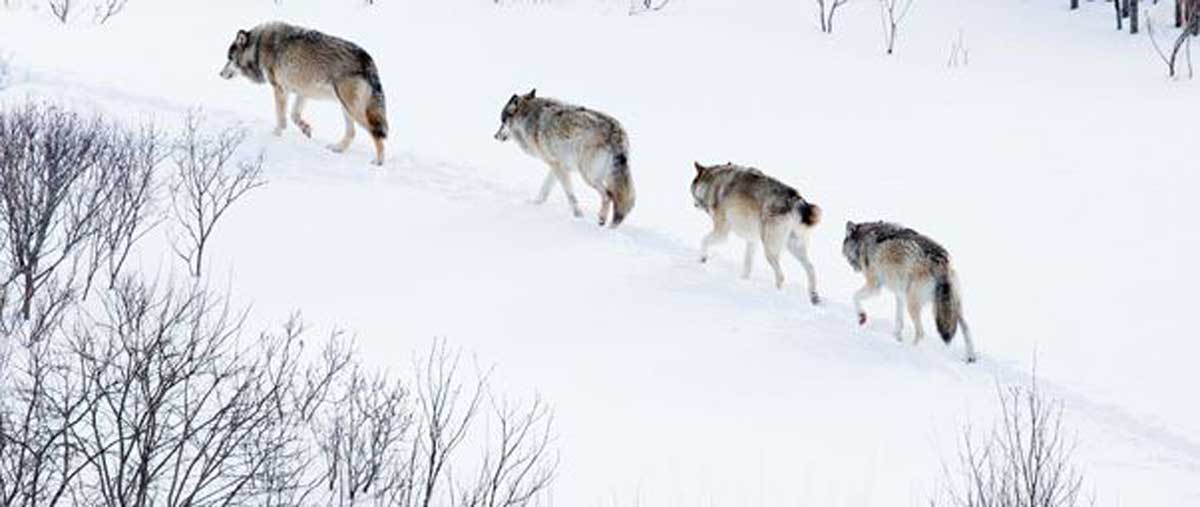MISSOULA, Mont.—The Rocky Mountain Elk Foundation joined a coalition of partners by filing an appeal to remove wolves in the Great Lakes region from federal protection and return them to state management.
In December of 2014, Judge Beryl A. Howell wiped out several years of successful management in Michigan, Minnesota and Wisconsin by returning wolves to the Endangered Species List. In her ruling, Judge Howell overlooked the region’s robust population by stating wolves in the Great Lakes cannot be considered recovered until they are re-established across their widespread historic range covering much of the United States.
“Plain and simple, state agencies –not the federal government– are best qualified and equipped to manage wolves just as they manage all other wildlife,” said David Allen, RMEF president and CEO. “The judge did not rule that the Great Lakes wolf population is ailing. On the contrary, it’s thriving—a fact that is echoed by wildlife scientists.”
“The science clearly shows that wolves are recovered in the Great Lakes region, and we believe the Great Lakes states have clearly demonstrated their ability to effectively manage their wolf populations,” said Greg Shire, U.S. Fish and Wildlife Service spokesman.
An estimated 3,700 wolves currently live in the Great Lakes region, far exceeding minimum population objectives. Sixty-five percent, or an estimated 2,423 wolves, live in Minnesota.
“The (Minnesota) wolf population is absolutely in no danger of extinction or even undue decline,” said David Mech, renowned researcher and founder of the International Wolf Center. “It’s doing great and if the public decides through the legislature, and the democratic process thinks wolves should be hunted or taken, the population can sustain a high level of take on an annual basis without any concern or endanger to the population.”
The judge’s ruling put an end to wolf management hunts. It also stipulated that people can only kill a wolf in self-defense but not to protect pets or livestock.
“The Fish and Wildlife Service has the ability to interpret and implement its own rules in determining what constitutes a recovered species. It should not be up to animal rights groups that file lawsuit after lawsuit and claim the states seek to push populations toward extinction. In this case, wolves are firmly recovered in a significant portion of their native range. The judge made a ruling that went too far,” added Allen.
About the Rocky Mountain Elk Foundation:
Founded over 30 years ago, fueled by hunters and a membership of more than 222,000 strong, RMEF has conserved more than 7.1 million acres for elk and other wildlife. RMEF also works to open and improve public access, fund and advocate for science-based resource management, and ensure the future of America’s hunting heritage. Discover why “Hunting Is Conservation™” at www.rmef.org or 800-CALL ELK.
